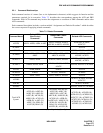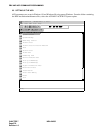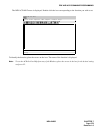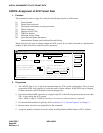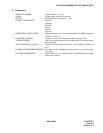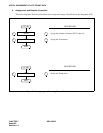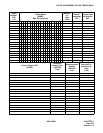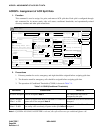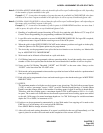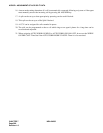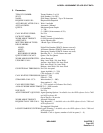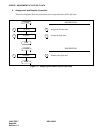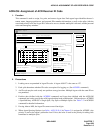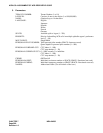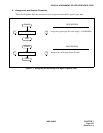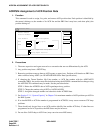
NDA-24282 CHAPTER 7
Page 385
Revision 1.0
ACDSPL: ASSIGNMENT OF ACD SPLIT DATA
Note 2:
If COND= AGENTS AVAILABLE is selected, then this split will accept Conditional Queue calls, depending
on the number of agents available in the split.
Example: If “2” is entered as the number of agents that must be available in COND DETAIL, then there
will have to be at least 2 agents available in the split before it will accept any Conditional Queue calls.
Note 3:
If COND= CALLS IN QUEUE is selected then the split will accept Conditional Queue calls depending on
how many calls are already in queue in this split.
Example: If “3” is entered as the number of calls in queue in COND DETAIL and there are more than 3
calls in queue, this split will not accept Conditional Queue Calls.
4. Handling of conditionally queued incoming ACD calls for a particular split. Refer to CCV steps (Call
Control Vector Programming) for programming conditional call handling.
5. Logon IDs can be set either as required or not used in REQUIRE LOGON ID. If a logon ID is required,
an agent must enter a logon ID before receiving access to the ACD system.
6. When the split is in the QUEUE WHEN VACANT mode (when no positions are logged on in the split),
either the Queue or Do Not Queue option may be programmed.
7. The Assist key can be programmed on a split-wide basis to function as an Assist key or a Monitor Me
key in ASSIST KEY IS “MONITOR ME”.
8. Work mode can be Allowed or Restricted on a split-wide basis.
9. Call Waiting lamp can be programmed with two queue thresholds. It can light steadily when a specific
number of calls are in queue, then flash when the second threshold of number of calls are in queue.
10. Never set the Call Waiting Threshold “LIGHT” and “FLASH” to the same value. Always set the
“LIGHT” value lower than the “FLASH” value.
11. Work mode can be programmed to timeout after a position has been in Work mode for a predetermined
time (on a split-wide basis).
12. Each split can be programmed to have one break mode type or nine break mode types in MULTIPLE
BREAK TYPES.
13. QUEUE:
The maximum number of calls that can be in queue at any given time. This field allows normal inputs
(“150”) as well as “percentage” inputs (“150%”), used for Variable Depth Queuing. A Variable Queue
Depth is one that changes based on the number of working agents (logged on and not in break mode).
Therefore, with four working agents, a maximum depth of 150% would equate to 150% × 4 = 6 calls
in queue. The seventh call would then not be allowed to queue until more working agents were added
to the split. Valid ranges for normal maximum depths are 1 to 700. Valid ranges for variable maximum
depths are 5% to 1000%, in increments of 5%.
14. Positions can be programmed to automatically go into Work mode if an outgoing call is made on the
PBX line, or if an incoming call is received on the PBX line.
Press SPACE BAR to change selection (No/Yes)
15. After-call work mode setting determines if an agent is available for the next call immediately, or if the
agent is placed in an after-call work mode at the completion of the current ACD call.



